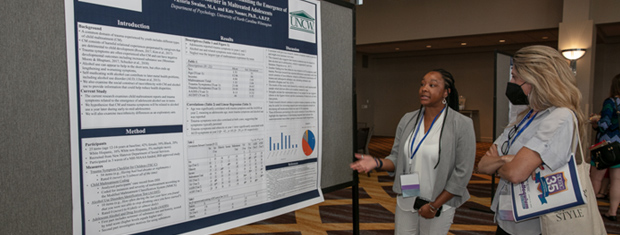




The APSAC Advisor is a peer reviewed quarterly news journal for professionals in the field of child abuse and neglect.
The APSAC Advisor provides succinct, data-based, practice-oriented articles that keep interdisciplinary professionals
informed of the latest developments in policy and practice the field of child maltreatment. It is designed to highlight
best practices in the field and publish original articles and current information about child maltreatment for professionals
from a variety of backgrounds including medicine, law, law enforcement, social work, child protective services, psychology,
public health and prevention in the U.S.
 If you wish to learn more about submitting an article to the Advisor, please click here.
If you wish to learn more about submitting an article to the Advisor, please click here.
This library contains Advisor issues dating back to the first issue in 1988. The most recent issue appears at the top.
Scroll down to select past issues by year and issue number. Once a publication appears in the box, you
can use the Enlarge button to open the document in a new window or tab (depending on how your browser is set up).
This will allow you to view the document with larger print.
To print a document, first use the Enlarge button to open the document in a new window or tab. Then use your browser's Print command.
To return here from a new tab, close the tab. To return from a new window, click your browser's Back button.
In the listing below, click on a year and issue number to see the articles in that publication.
2005 Number 2
‘Reasonable Efforts’:A Call to Clarify Child Protection Law
“Reasonable efforts” has been the guiding standard of child protection law for longer than any of the children currently involved under the law has been alive. But do the adults concerned really know the meaning of the term “reasonable efforts”?
Quick but Not Dirty: Rapid Evidence Assessments as a Decision Support Tool in Social Policy
The demand for “evidence” to inform social policy decisions is now widespread. Its prominence within the United Kingdom emerged in 1997 with the election of the Labour government, and the government’s use of principles derived from “new public management,” with its emphasis on monitoring and control (Walker, 2000).
Stress, Trauma, and Support in Child Welfare Practice
A growing body of literature spanning three decades identifies the emotional impact of providing social work services. This process, defined as burnout, is viewed to encompass a variety of symptoms, including emotional exhaustion, loss of a sense of personal and professional accomplishment, diminished capacity to meet the needs of clients, and ultimately, job departure.
The purpose of Journal Highlights is to alert readers to current literature on child abuse. Selected articles from journals representing the variety of disciplines reflected in APSAC's membership are presented in the form of an annotated bibliography.
APSAC Advisor 17(2): Full Issue